
Empires and Ancient Encounters Tour India
Hampi Karnataka India
Mother Masala Tours
A Journey Through Time
Hampi Karnataka India. Hampi's story begins long before its golden age. This historical area became the heart of the Vijayanagara Dynasty, a dominant South Indian power from the 14th to 16th centuries. Founded in 1336 by Harihara I and Bukka Raya I, it grew into one of the largest and wealthiest medieval states, reaching its zenith under Krishnadevaraya in the early 16th century. The capital city, Vijayanagara, was a sprawling metropolis known for its immense wealth, trade, and intricate urban planning, supporting a large population. Its fall in 1565 after the Battle of Talikota left behind the impressive ruins, a testament to its grandeur and a pivotal point in Indian history.
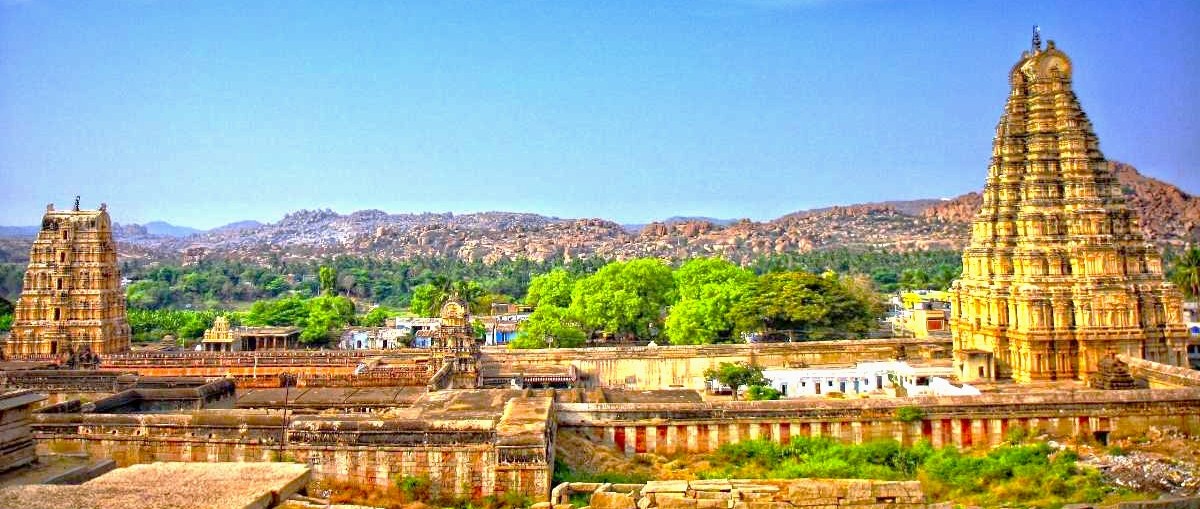
Hampi Karnataka India: Sacred Spaces
A Unseco World Heritage Site, holds an array of structures that tell its story. We will find ancient temples like Virupaksha Temple, still active, offering a glimpse into continuous devotion. Other places, such as the Hazara Rama Temple, present detailed carvings depicting mythological narratives. The Stone Chariot, a truly unique carriage-like structure at Vittala Temple, stands as an example of past construction skills. These places let us feel the energy of the past and connect us to a bygone era.
Ancient Mosaics: Impeccable Craftsmanship The artisans of the
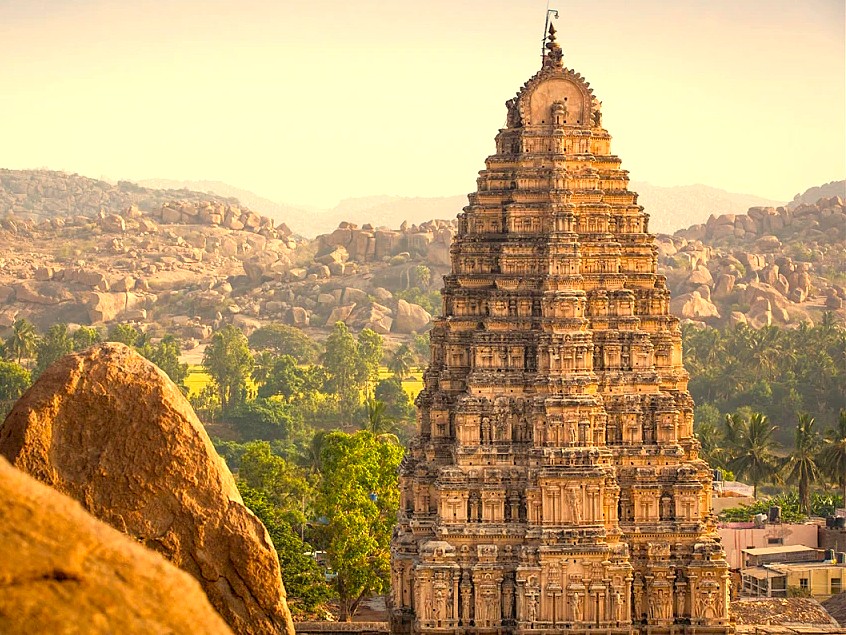
The artisans of the Vijayanagara Dynasty seamlessly blended the roles of brilliant engineer and master artist, their profound skill etched into every stone of Hampi. Their detailed work is visible in the delicate carvings and sculptures found throughout the ruins. Their genius is on full display at the Vittala Temple, where musical pillars created in the 15th century sing with clear, bell-like tones when gently tapped, a phenomenal feat of acoustic engineering. Just as they mastered sound, they also conquered scale. The awe-inspiring monolithic statues of Kadalekalu Ganesha and Sasivekalu Ganesha exemplify this.
The Pulse of the Local Community
You will discover that the people here carry the warmth of their heritage. They greet us with genuine smiles and open hearts. Their unique qualities lie in their deep-rooted respect for tradition and their generous spirit. They continue to live harmoniously with the ancient stones, their daily lives weaving seamlessly into the historical tapestry around them. This enduring connection to their past shapes their inviting and hospitable nature toward us.
Capturing the Magic: A Photographic Haven
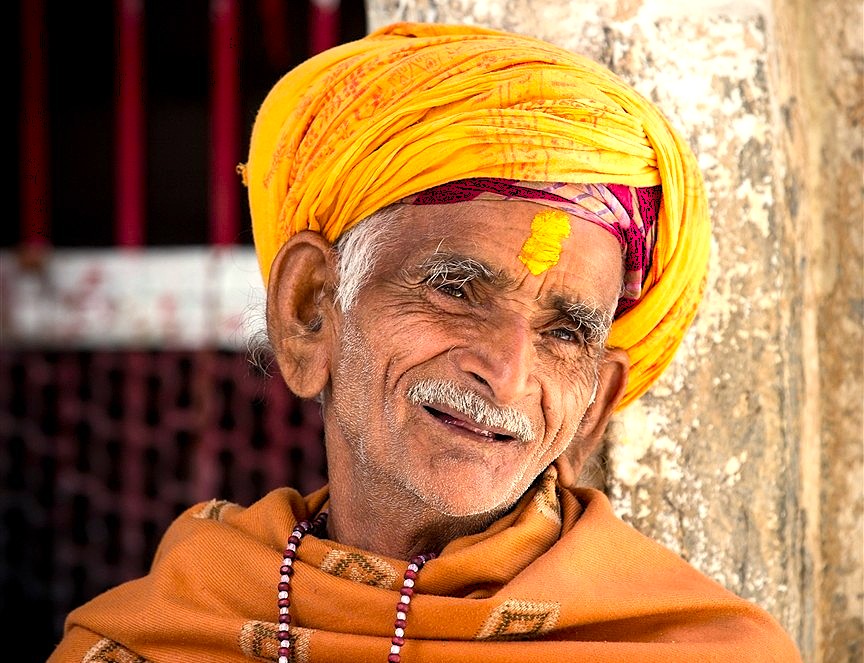
This entire destination is a photographer’s paradise, offering endless chances to capture the serene and majestic mood of a lost empire. The iconic Stone Chariot at the Vittala Temple, frozen in time with its intricately carved wheels, presents a truly unforgettable sight. The golden hours of sunrise and sunset on Hemakuta Hill are magical, as the low sun paints the boulder-strewn landscape in warm hues and casts dramatic, long shadows across the ancient ruins. The arches and grand domes of the Elephant Stables provide compelling, structured compositions. The graceful Queen’s Bath, with its open-to-the-sky pool and pillared corridors for a stunning reflection.
A Culinary Journey: Savor the Flavour
Our journey will include savoring Hampi's local specialty, Maddur Vada. This crispy, savory snack, distinct from its dosa and idli counterparts, is made from semolina, rice flour, maida, and spices like onions, curry leaves, and green chilies. The mixture is flattened into a disk and deep-fried to a golden perfection. Its unique texture and spicy aroma make it a beloved roadside treat, a perfect complement to a hot cup of tea or coffee, reflecting the regional palette.
The Connection With the Gods
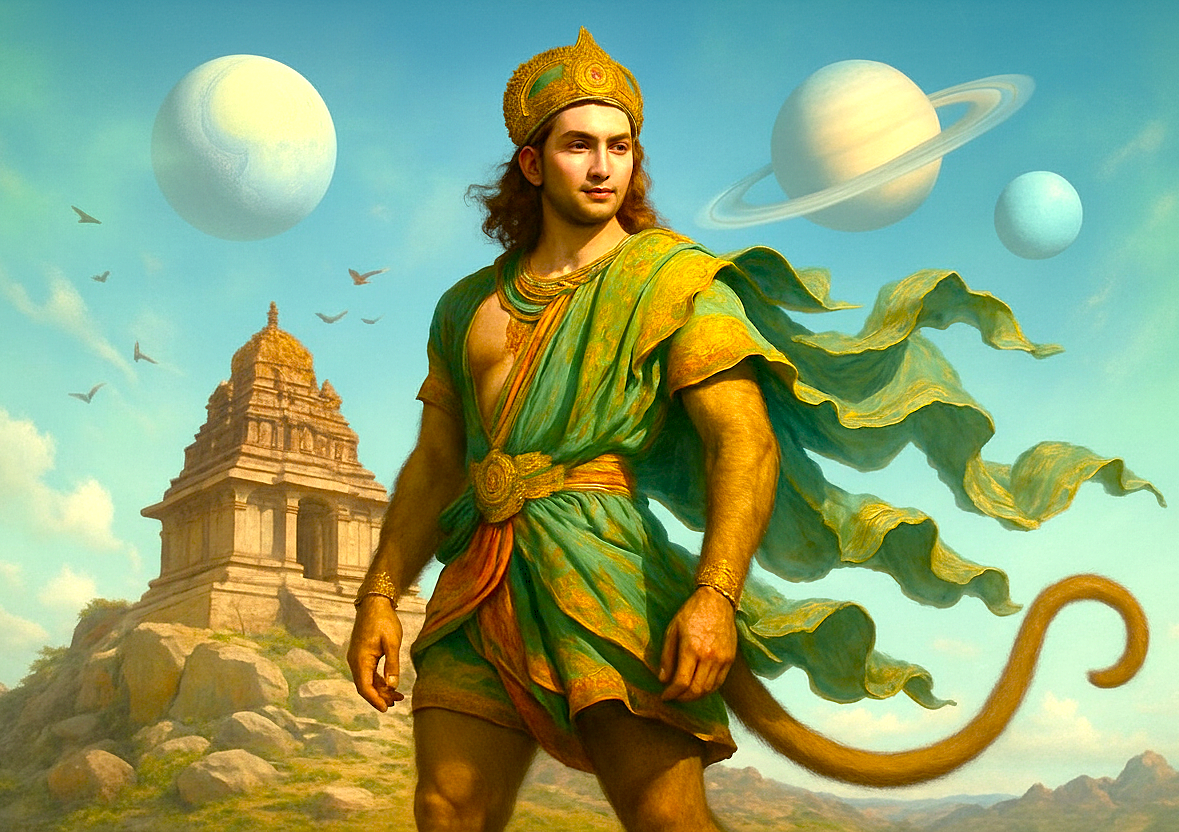
In Hampi, devotion flows in two powerful streams. Hanuman is revered with a unique intensity, as this land is believed to be Kishkindha, his birthplace. For devotees, he is the native son and divine protector, and the pilgrimage to his temple atop Anjanadri Hill is a sacred act. His image is carved into countless boulders, a constant presence watching over the ruins. However, the spiritual heart of Hampi beats within the magnificent Virupaksha Temple, which has been active for centuries. This grand complex is dedicated to Lord Virupaksha, a form of Lord Shiva, who was the patron deity of the Vijayanagara kings.
Festivals of Devotion: Honouring the Sacred and the Divine
Hampi Karnataka India. The annual Hampi Utsav, usually held in January, brings the ruins to life with cultural performances. The Purandaradasa Aradhana, occurring around January or February, celebrates the saint-composer Purandaradasa with devotional music. The Krishna Janmashtami festival, celebrating Lord Krishna’s birth, usually in August or September, attracts many followers to the Krishna Temple. These events are filled with music, dance, and traditional ceremonies.
Resilience and Renewal: Overcoming Adversity's Challenges
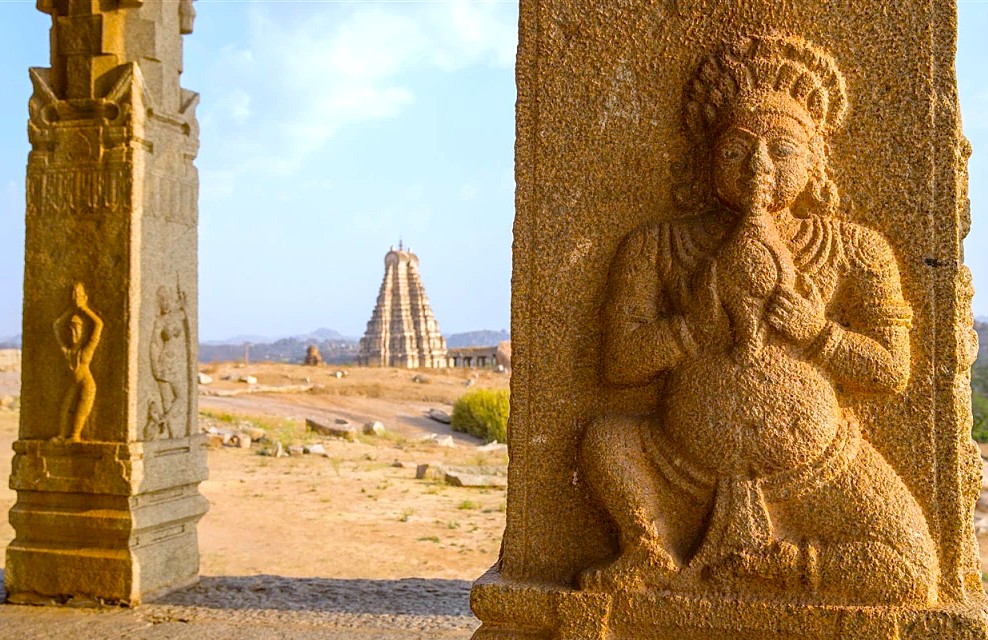
Hampi's landscape reveals a history shaped by significant adversity and subsequent renewal. The former capital of the Vijayanagara Empire experienced a devastating invasion that left much of the city in ruins. We explore the vast area, observing the remains of once-grand palaces, markets, and sacred complexes scattered among giant boulders. Despite this widespread destruction, the site shows remarkable signs of persistence and continued life. Certain temple's remain active centers for worship, maintained by local communities for many generations.
Serendipitous Meetings: Beyond the Main Path
Walking through Hampi, we will discover quaint pathways that lead away from the main areas. You might come across small local workshops where skilled craftspeople create stone carvings or weave textiles using traditional methods. Perhaps we will see locals grinding spices or preparing local delicacies in small, family-run establishments. These everyday scenes offer us a quiet glimpse into the enduring local life, showing us a different side of Hampi beyond its grand old structures.
Ancient Technologies: Sacred Sound, Geometry & Astrological Influences
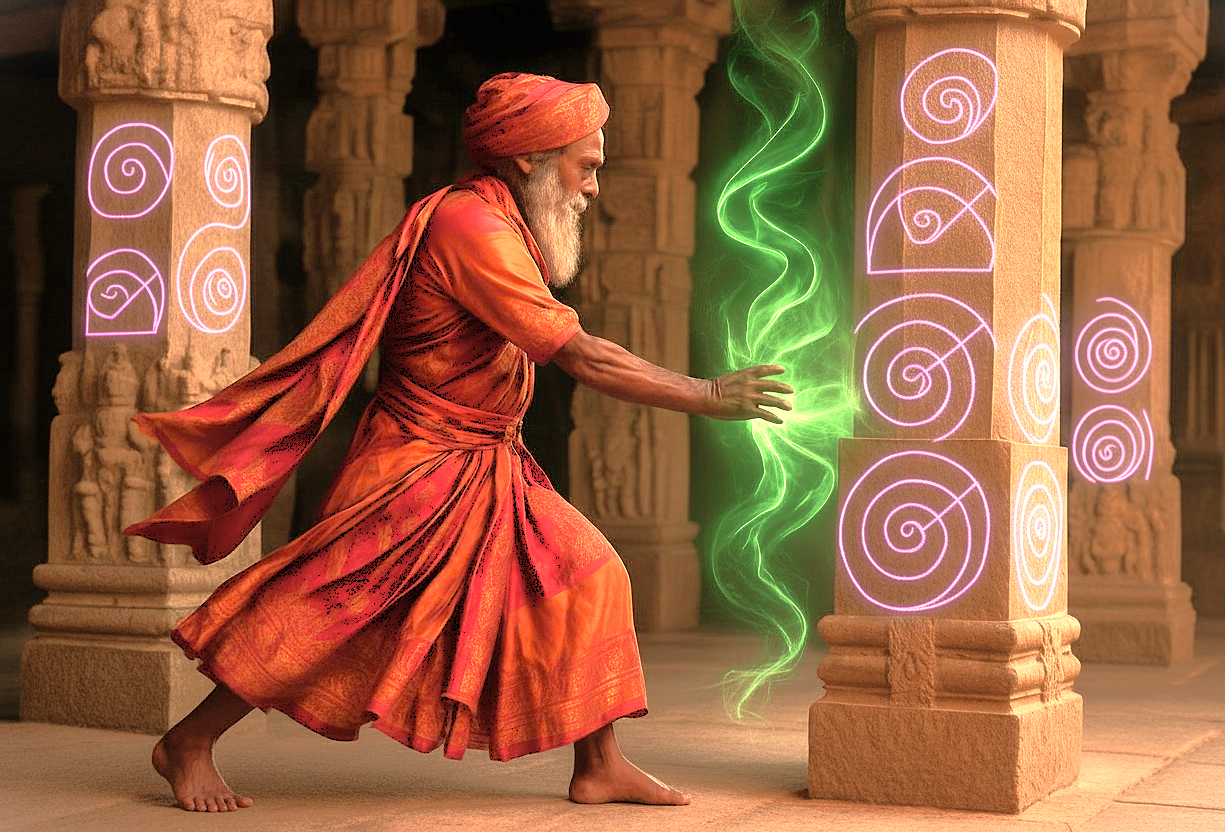
The construction at Hampi, particularly the Vittala Temple's musical pillars, represents refined ancient engineering. These pillars, made of solid rock, create specific frequencies when struck, a phenomenon connected to ancient acoustic principles. While not explicitly using Solfeggio frequencies, the underlying concept aligns with the enduring belief that certain sounds profoundly influence human experience and well-being. The geometric layout of the temples, thoughtfully adhering to Vastu Shastra principles, alongside the Golden Ratio in Fibonacci spiral patterns.
Hampi: Where Experiences Find You, Join Us
Hampi Karnataka India. Be a Part of this incredible journey. We are about to embark on an extraordinary exploration of Hampi, a destination that promises to immerse us in the grandeur of a lost empire. Every step we take, every old stone we touch, will transport us through centuries of history, allowing us to feel the pulse of a past civilization. Join us as we uncover its secrets, witness its enduring spirit, and create memories that will last a lifetime.
Symphony of Generosity: Offerings from Wanderers to Residents
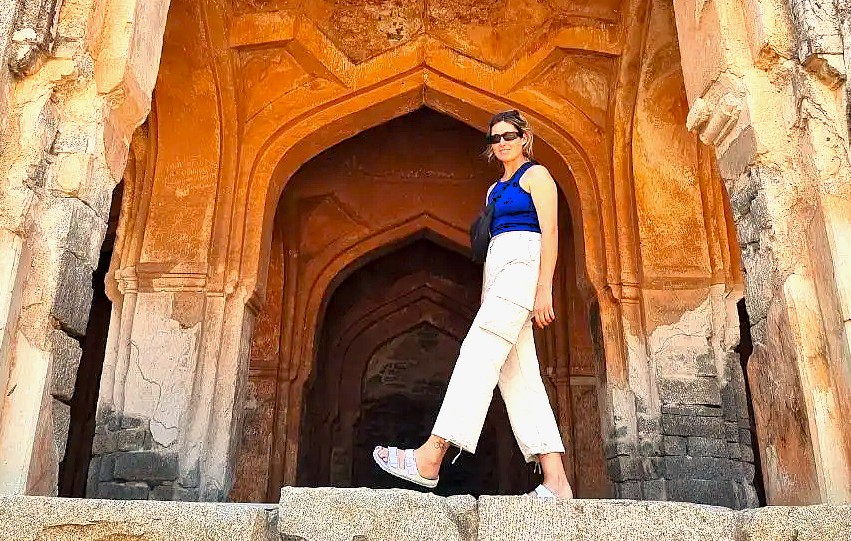
The mutual exchange during our Hampi visit creates a beautiful synergy. As wanderers, we contribute financially to the local economy, supporting small businesses, artisans, and families who rely on our presence. In return, we receive their genuine hospitality, authentic cultural insights, and connections that deepen our understanding of their heritage. Locals gain a broader perspective from our stories and experiences, while we benefit from their guidance and warmth. This exchange cultivates a peaceful atmosphere of mutual respect and learning.
Step Inside The Story - View All Tour Itineraries & Details
We’re here to offer genuine, thoughtful guidance for your travels. As a small, dedicated team, we pay close attention to every detail so you can focus on enjoying the experience while we take care of the planning. We believe the best trips begin when someone truly listens to what you want and how you like to travel, so the journey feels right for you and contributes to a happy, positive group on tour. Our communication stays clear, straightforward, and respectful at every step, with the goal of helping you feel understood, supported, and confident from first contact to the end of your journey. Click here:- Discover Life Travel - India Tour Specialists